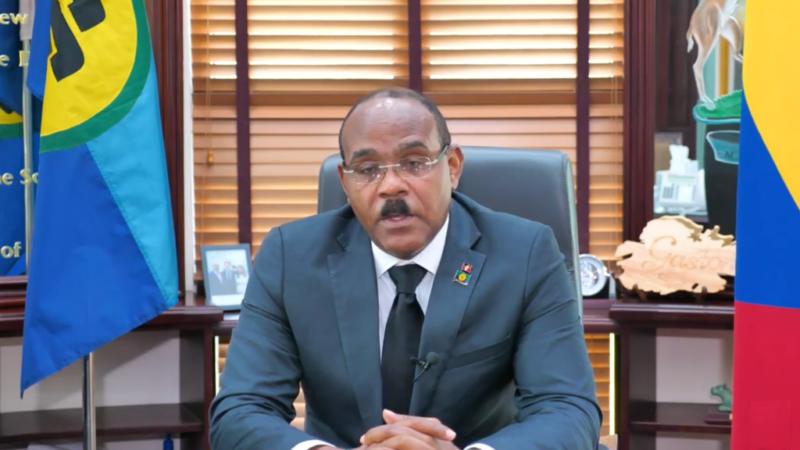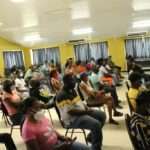
Prime Minister Gaston Browne
Prime Minister Gaston Browne is said to have followed through on a commitment to reach out to the shareholder governments of former LIAT 1974 LTD, asking them to put their $12.1 million stake, currently held in escrow at the Eastern Caribbean Central Bank, at a lower priority.
Browne expressed his plans over the weekend and reportedly sent letters to the prime ministers of Dominica, St. Vincent and the Grenadines, and Barbados to present his case.
According to information obtained by Antigua.news, Browne stressed to his regional counterparts that addressing the issue of severance for former LIAT workers is crucial.
He suggested a compassionate solution: releasing the CDB lien on the planes to free up the $12 million currently held in escrow.
Further information indicates that in his letter issued on Tuesday, Browne reportedly told the three shareholder governments that the Caribbean Development Bank currently has a secured position due to the nature of the sovereign debt, which remains in good standing.
Placing an additional lien on the aircraft not only constitutes excessive securitization, he said but also prevents shareholder governments from using the US$12.1 million to significantly ease the difficulties faced by former LIAT staff through the partial settlement of their severance.
Browne reportedly said such an act would demonstrate the shared values of empathy and justice and help rebuild public confidence in our governance.
If the shareholder governments agreed, Browne said it would show their communities and future generations that their contributions are valued for immediate economic benefits and a deeper commitment to societal well-being.
He assured that the CDB’s position would not be compromised, as the Bank will continue to receive payments on the sovereign debt that we all contribute to.
Browne had urged the ex-employees of LIAT to consider a 50% compassionate payment proposal from the Antiguan government, assuring them that he would stand by them in pursuing the remaining 50% from the other governments that hold shares in the company.




0 Comments